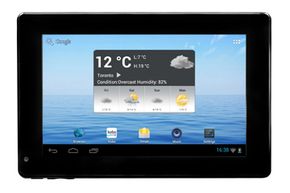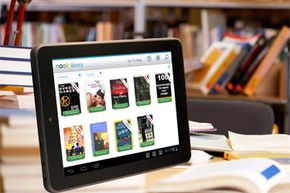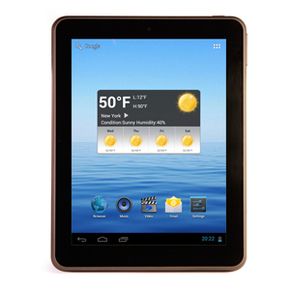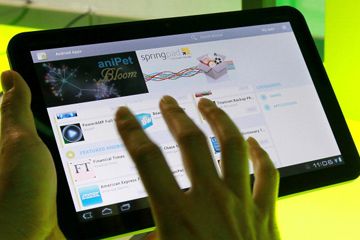Tablet PCs are the new computer superstars. Smaller than laptops but bigger than your smartphone, tablets offer a pleasant mix of power and fun that you won't see in any other device. No wonder some experts expect that tablets sales could hit roughly 300 million units by 2015 [source: Guardian].
Apple's seemingly omnipresent iPad is expected to make up the bulk of those shipments. But plenty of other companies want a piece of the tablet pie -- and they see an opportunity in offering lower-priced models far cheaper than the iPad.
Advertisement
Nextbook is just one of numerous brands focused on providing budget-priced tablets. Like so many similar companies, Nextbook jumped into the market thanks to Google's Android OS (operating system), which is open-source and free, and thus, not subject to huge software licensing fees that would otherwise serve as a significant barrier to entry.
With an OS in hand, the primary concern becomes hardware. On these tablets, you won't find bleeding-edge CPUs and loads of RAM. Rather, they have slower processors, less RAM and storage capacity that befits budget-priced machines.
However, Nextbook is continually tweaking its lineup. All of its tablets are engineered and manufactured by E-FUN Inc, which is based in California. The company's small size means it can reengineer tablets on a short timeline and ship them fast, too. As evidence, you'll see dual-core tablets from them soon.
Inexpensive computer products, no matter the brand, often garner mixed reviews. The same goes for this lineup of Nextbook tablets. Some users get frustrated with what they see as aggravating limitations. Others, however, view these devices as an affordable way to get their hands on a fun tablet without jacking their credit card balance into the stratosphere.
Like the idea of tablet computing on a budget? Keep reading, and we'll show you exactly what kind of computer power you get for surprisingly low prices.
Advertisement




